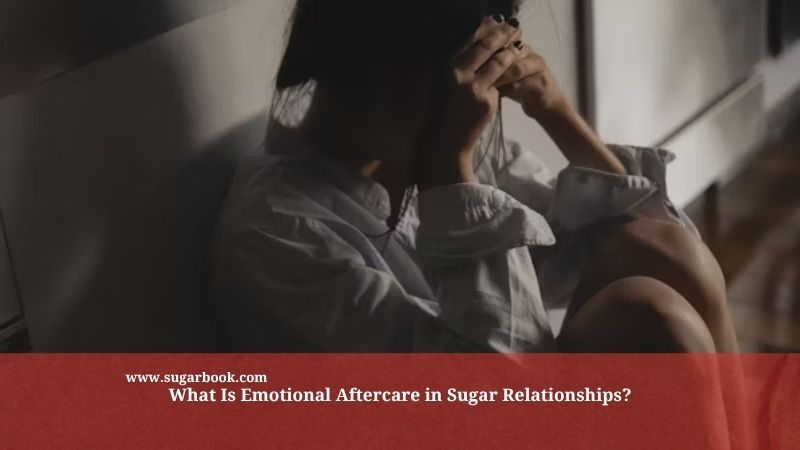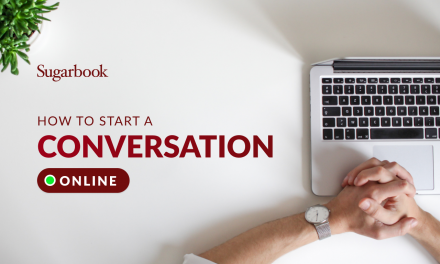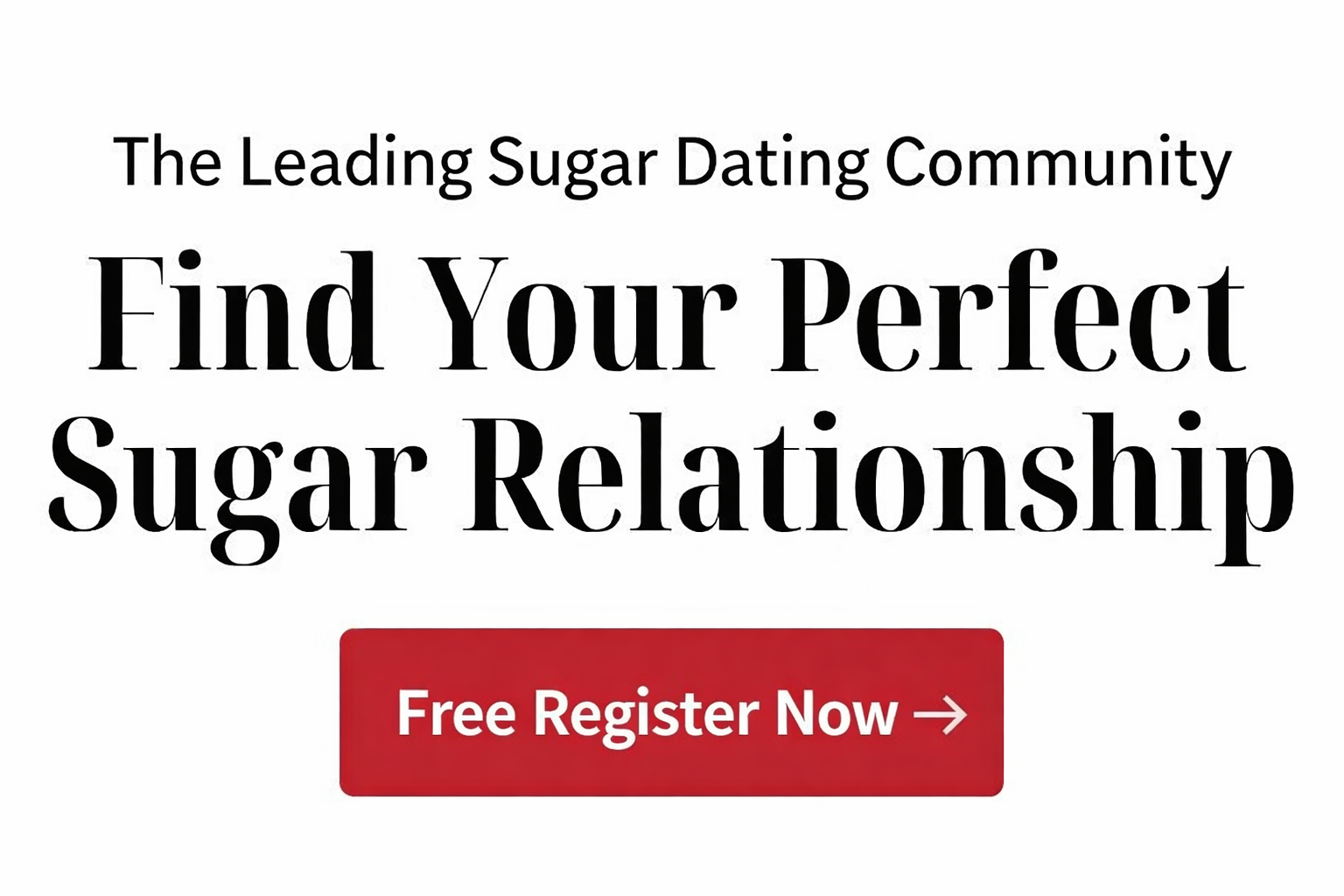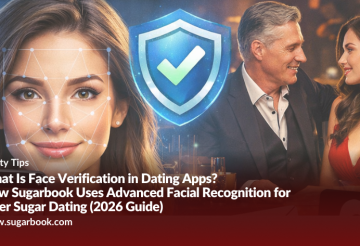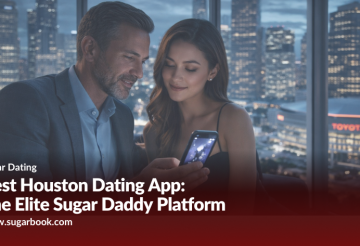
Meet successful sugar daddies and confident sugar babies on the world’s leading sugar dating app. Join free today.
📌 Editor’s Note (2025 Refresh): This guide now includes updated emotional care tips for sugar daddies and sugar babies – plus how to communicate needs post-date.
In the world of modern intimacy and alternative dating, one concept stands out as both powerful and misunderstood: emotional aftercare.
Once limited to BDSM and kink spaces, emotional aftercare is now an essential practice in various relationship models — including sugar dating. Whether you’re meeting someone for a lavish dinner or forming a long-term arrangement, knowing how to handle each other’s emotional needs is the key to building connection and avoiding confusion.
So, what does emotional aftercare mean in sugar relationships? Why does it matter? And how can users of Sugarbook apply it in real time?
Let’s explore.
Contents
- What Is Emotional Aftercare?
- Why It’s Crucial in Sugar Relationships
- Examples and Tips for Emotional Aftercare in Sugar Dating
- Emotional Aftercare vs Material Support: What’s the Difference?
- How Sugarbook Encourages Healthier Emotional Connections
- Frequently Asked Questions About Emotional Aftercare
- Conclusion: Emotional Aftercare Is the Foundation of Meaningful Sugar Relationships
- Why Emotional Aftercare Matters in Sugar Dating
What Is Emotional Aftercare?
Emotional Aftercare Meaning and Origins
The term emotional aftercare refers to the process of caring for a partner’s emotional well-being after an intense or intimate experience. It originated in BDSM communities, where scenes often involve psychological intensity or vulnerability that needs processing and decompression.
In those contexts, emotional aftercare might involve:
-
Physical comfort (holding, cuddling)
-
Verbal reassurance
-
Checking in emotionally
-
Time apart for reflection, followed by reconnection
The goal is to ensure that both partners feel safe, respected, and emotionally grounded after a shared experience.
How It Evolved from Kink to Mainstream Dating
As awareness around mental health and emotional intelligence has grown, emotional aftercare has moved into other dating models. Today, it’s widely used in:
-
Situationships and casual hookups
-
Open or poly relationships
-
Intense emotional conversations
-
Breakups and transitions
-
And yes — sugar dating arrangements
Sugar relationships are often more emotionally nuanced than outsiders assume. They involve power dynamics, lifestyle expectations, and personal boundaries that require intentional care.
Emotional Aftercare in Non-Sexual Contexts
Contrary to popular belief, emotional aftercare isn’t just for post-intimacy. It can also apply to:
-
Mentorship moments that become emotionally heavy
-
Lifestyle boundaries being tested or renegotiated
-
Vulnerability during deep conversations or disagreements
The emotional aftercare meaning expands beyond physical touch — it’s about honoring connection and emotional labor.
Why It’s Crucial in Sugar Relationships
Emotional Vulnerability in Sugar Dynamics
While sugar dating is often portrayed as transactional, real sugar relationships usually involve emotional nuance. A sugar baby may rely on a sugar daddy/mama for guidance, confidence, or emotional validation — and vice versa.
This makes emotional aftercare a necessary tool to:
-
Validate emotional experiences
-
Reaffirm mutual respect
-
Keep the dynamic healthy and enjoyable
Sugar relationships may include:
-
Shared travel experiences
-
Romantic interactions
-
Lifestyle mentorship
-
Deep personal bonding
Each of these moments can trigger emotional highs or confusion, which — if left unaddressed — can lead to:
-
Miscommunication
-
Jealousy
-
Ghosting
-
Emotional detachment
Emotional aftercare helps process the experience and prevent unnecessary fallout.
Reducing Burnout, Miscommunication, and Confusion
Without emotional aftercare, sugar dating can feel unbalanced. Sugar babies may feel used or unsure of their place. Sugar daddies/mamas might misunderstand boundaries or emotional cues.
Checking in afterward helps avoid:
-
Overwhelm from mismatched expectations
-
Emotional burnout from repeated misalignments
-
Sudden endings that could have been prevented
Examples and Tips for Emotional Aftercare in Sugar Dating
What Emotional Aftercare Looks Like in Practice
In sugar relationships, emotional aftercare doesn’t need to be overly formal — it just needs to be intentional and caring. Some examples include:
-
Sending a thoughtful text after a meetup:
“Thanks for tonight — I really appreciated our time and your energy. Hope you’re feeling good too.” -
Checking in the next day:
“Just wanted to check how you’re feeling about yesterday. Anything you’d like to talk about?” -
Offering reassurance after setting a new boundary:
“I respect your limit, and I’m glad you shared it. That doesn’t change my interest in our connection.”
These moments might seem small, but they can build trust and prevent emotional disconnection.
Emotional Aftercare Techniques for Sugar Babies
If you’re a sugar baby, practicing emotional aftercare may involve:
-
Reflecting on how you felt during and after your interaction
-
Journaling or talking with a trusted friend about any emotional shifts
-
Communicating your needs to your sugar partner if something felt off
Remember, you are not expected to carry the emotional load alone. If you feel drained, disrespected, or confused, that’s a sign to ask for support or reconsider the arrangement.
Emotional Aftercare Tips for Sugar Daddies and Sugar Mamas
As the more established partner, you set the tone for emotional safety. Great emotional aftercare on your part may look like:
-
Asking your sugar baby how they feel about your time together
-
Acknowledging any vulnerable moments they shared
-
Respecting their emotional space if they need to process alone
Taking care of someone emotionally is a strength, not a burden — and it enhances the overall experience for both of you.
Emotional Aftercare vs Material Support: What’s the Difference?
Some people confuse emotional aftercare with material gestures — gifts, allowances, or experiences. While those can express care, they are not a substitute for emotional presence.
| Type of Support | Example | Purpose |
|---|---|---|
| Material | Gifts, cash, luxury outings | Lifestyle enhancement |
| Emotional | Validation, empathy, check-ins | Trust and emotional safety |
You can give both — but don’t let one replace the other.
How Sugarbook Encourages Healthier Emotional Connections
Sugarbook provides a platform that values:
-
Transparent communication
-
Mutual respect
-
Goal-driven matching
While not every Sugarbook user practices kink or deep emotional dynamics, the platform allows people to clearly express their preferences, limits, and emotional availability.
Whether you’re a dominant, a romantic, or simply a kind soul, Sugarbook is built to support safer, smarter relationship structures — including those with emotional aftercare built-in.
Frequently Asked Questions About Emotional Aftercare
What is emotional aftercare and why is it important?
Emotional aftercare is the intentional care and support offered to a partner after a deep or intense interaction — emotional, physical, or psychological. It’s crucial for maintaining trust, avoiding confusion, and deepening emotional safety.
Is emotional aftercare always required in sugar dating?
Not always, but it’s highly recommended – especially after:
-
First meetups
-
Boundary-setting moments
-
Emotional or intimate exchanges
-
Transitions in the arrangement
How do I know if I or my partner need aftercare?
Look for signs like:
-
Sudden mood shifts
-
Silence or pulling away after meetups
-
Feelings of confusion or sadness
-
A need for reassurance
If any of these show up, it’s a cue that emotional aftercare could help.
Can emotional aftercare prevent ghosting or detachment?
Yes. Many instances of ghosting come from unspoken emotional discomfort. Aftercare gives both partners a way to address feelings before they escalate into avoidance or exits.
What happens if emotional needs go unmet?
When emotional aftercare is missing, partners can feel:
-
Used
-
Confused
-
Resentful
-
Unsafe
This leads to burnout, short-lived connections, or damaged reputations — especially in niche dating communities.
How does Sugarbook support emotional safety?
Sugarbook promotes emotional safety through:
-
Verified profiles
-
Private messaging with mutual consent
-
Features that support communication clarity
-
A culture that encourages transparency and mutual respect
Conclusion: Emotional Aftercare Is the Foundation of Meaningful Sugar Relationships
Understanding and practicing emotional aftercare isn’t just a kink concept – it’s a relationship essential. In sugar dating, where expectations are often fluid and arrangements vary, aftercare helps create clarity, compassion, and connection.
Whether you’re new to the sugar lifestyle or a seasoned Sugarbook member, taking time to check in emotionally – with yourself and your partner – turns casual into meaningful, and transactional into respectful.
Because at the end of the day, it’s not just about what you give or receive – it’s about how you leave each other feeling.
FAQ
Q1: What is emotional aftercare in sugar dating?
A1. It’s the check-in and emotional support offered after a sugar meet – whether physical or emotional.
Q2: Who needs aftercare more, sugar daddies or sugar babies?
A2. Both. Aftercare isn’t about gender – it’s about feeling safe, respected, and emotionally steady.
Q3: What does aftercare look like?
A3. A message, a cuddle, food, words of affirmation, or space. Ask what makes your partner feel “okay” after interaction.
Q4: Is emotional aftercare only for sexual encounters?
A4. Not at all. Even deep convos or emotional vulnerability can leave someone needing comfort afterward.
Q5: What if my sugar partner says they don’t need aftercare?
A5. Respect that – but check in gently. Sometimes needs shift, and offering care builds deeper trust.
Why Emotional Aftercare Matters in Sugar Dating
🇲🇾 Learn how Malaysian sugar babies communicate better: Read our red flag guide →
📱 中文使用者請看:包養後的情緒關照怎麼談?→

